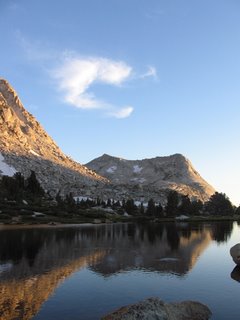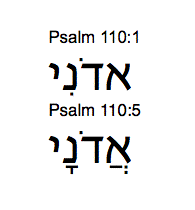In Joel 1:13-20 we get a picture of some of the response to the devastation.
Put on sackcloth and lament, O priests;
wail, O ministers of the altar.
Go in, pass the night in sackcloth,
O ministers of my God!
Because grain offering and drink offering
are withheld from the house of your God.
What is sackcloth?
A Google search yields this item. Excerpt:
Term originally denoting a coarsely woven fabric, usually made of goat's hair. It afterward came to mean also a garment made from such cloth, which was chiefly worn as a token of mourning by the Israelites. It was furthermore a sign of submission (I Kings xx. 30 et seq.), and was occasionally worn by the Prophets.Consecrate a fast;
As the Old Testament gives no exact description of the garment, its shape must be a matter of conjecture. According to Kamphausen, the sa? was like a corn-bag with an opening for the head, and another for each arm, an opening being made in the garment from top to bottom.
call a solemn assembly.
Gather the elders
and all the inhabitants of the land
to the house of the LORD your God,
and cry out to the LORD.
Should we do this today?
With all the troubles in the world, I wonder if our churches should call for a fast and spend time in prayer to God for this lost and dying world?
On a few occasions, the churches I've attended have called for a day of prayer and the part about fasting is left to individual choice. Usually, the calls for a day of prayer is precipitated by some kind of crisis either in the world around us or some problem within the church.
Of the various spiritual disciplines, I freely admit fasting isn't one I practice. In my life, probably, I can count on one hand the number of times I've fasted.
Alas for the day!
For the day of the LORD is near,
and as destruction from the Almighty it comes.
Here the parallel structure suggests that the "day of the LORD" is equal to "destruction from the Almighty."
Yet, interestingly, it says, it is near but not yet here?
If I saw locusts descending and then destroying everything in sight, I'd say destruction is HERE NOW!
Does this mean it could actually be worse??
Is not the food cut off
before our eyes,
joy and gladness
from the house of our God?
The seed shrivels under the clods;
the storehouses are desolate;
the granaries are torn down
because the grain has dried up.
How the beasts groan!
The herds of cattle are perplexed
because there is no pasture for them;
even the flocks of sheep suffer.
The ruins of the locust swarm is described in vivid detail. I say again, it would seem as the Day of the LORD has already hit?
Perhaps, the key thing is that in this context, there is still time to turn to God as we saw in the call to prayer and fasting.
Perhaps, when the Day of the LORD truly hits, it is truly TOO LATE?
To you, O LORD, I call.
For fire has devoured
the pastures of the wilderness,
and flame has burned
all the trees of the field.
Even the beasts of the field pant for you
because the water brooks are dried up,
and fire has devoured
the pastures of the wilderness.
And so we conclude with Joel calling out to God describing the miserable situation the people are in.
Lord, when terrible things happen, sometimes I shake a fist at you in anger. Sometimes, I get on my knees and call upon you for help. From reading this chapter of Joel, I want to call upon you. I need to think about fasting and how perhaps that might be a spiritual discipline I need to practice so that I can draw closer to you. Amen.





